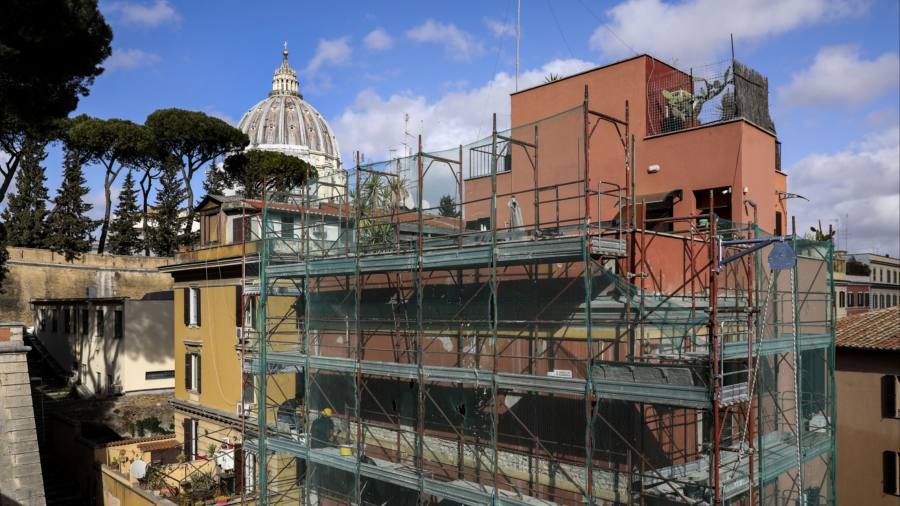Italy has warned that a serious labour shortage is hindering the country’s ability to implement projects worth billions of euros under the EU’s post-pandemic recovery programme.
In a report submitted to parliament, the Italian government has warned that a shortage of skilled workers in construction, IT and engineering — and a lack of competent administrators — is causing delays and could “jeopardise full implementation of the plan”. Italy is the largest beneficiary of the bloc’s €800bn programme and is slated to receive grants and loans worth up to €191.5bn by 2026.
The report comes as Rome has been waiting for several months for Brussels to clear its next tranche of funds, worth €19bn. It is also an admission that Rome is likely to face more delays in the disbursement of further funds.
The recovery plan has been seen as a once-in-a-generation opportunity to reboot Italy’s chronically underperforming economy and boost its long-term growth, by financing infrastructure investments such as railway lines, water systems, childcare facilities and health clinics.
But Rome says at least 20 per cent of the projects to be completed by 2026 are facing constraints such as higher raw materials costs, bureaucratic delays, lack of business interest or technological deficiencies.
The government is now in talks with Brussels over a comprehensive overhaul to make the plan more realistic. Changes to the programme could include postponing deadlines or cutting projects — leaving those deemed of strategic importance to be funded by resources not linked to such a strict timetable.
“It is inescapable,” the government report said, while affirming Rome’s commitment to fulfilling the programme’s “qualitative and quantitative objectives”.
The Bank of Italy had estimated that the ambitious package of investments would create 375,000 additional jobs in Italy in 2024 in a programme due to be complete by 2026. But Rome says that it lacks qualified personnel to fill these vacancies, which could have a “negative impact” on its progress.
With a rapidly ageing population, Italy is suffering from pervasive labour shortages, with complaints from employers of a struggle to fill around 40 per cent of vacancies, because of a dearth of qualified candidates.
The situation is expected to worsen over the next three years, when Eurostat estimates Italy’s working population will shrink by about 630,000, as the number of people hitting retirement age exceeds the number of new entrants to the labour market.
The Bank of Italy has urged the government to create a “priority channel’’ to attract skilled workers from abroad to quickly boost the recovery plan.
But Giorgia Meloni’s rightwing coalition is ambivalent about allowing non-European migrant workers to fill gaps in the labour market, and is instead cutting social welfare programmes to nudge people it considers “employable” to take up jobs.
Italy is issuing just 82,750 work permits for migrants from outside the EU this year from its annual lottery system, though employers requested more than 240,000 permits this year to meet their labour needs.
Cities and towns due to receive funds for infrastructure upgrades also lack experienced administrators to oversee the work.
“In the public administration, we don’t have people to take care of the projects,” said Francesca Benciolini, a Padova city councillor. Her city is set to receive €238mn from the EU Covid-19 fund for a new tramway line
“In all the technical jobs like architects and engineering,” Benciolini added, “we don’t find people. It’s a national problem.”
Read the full article here




